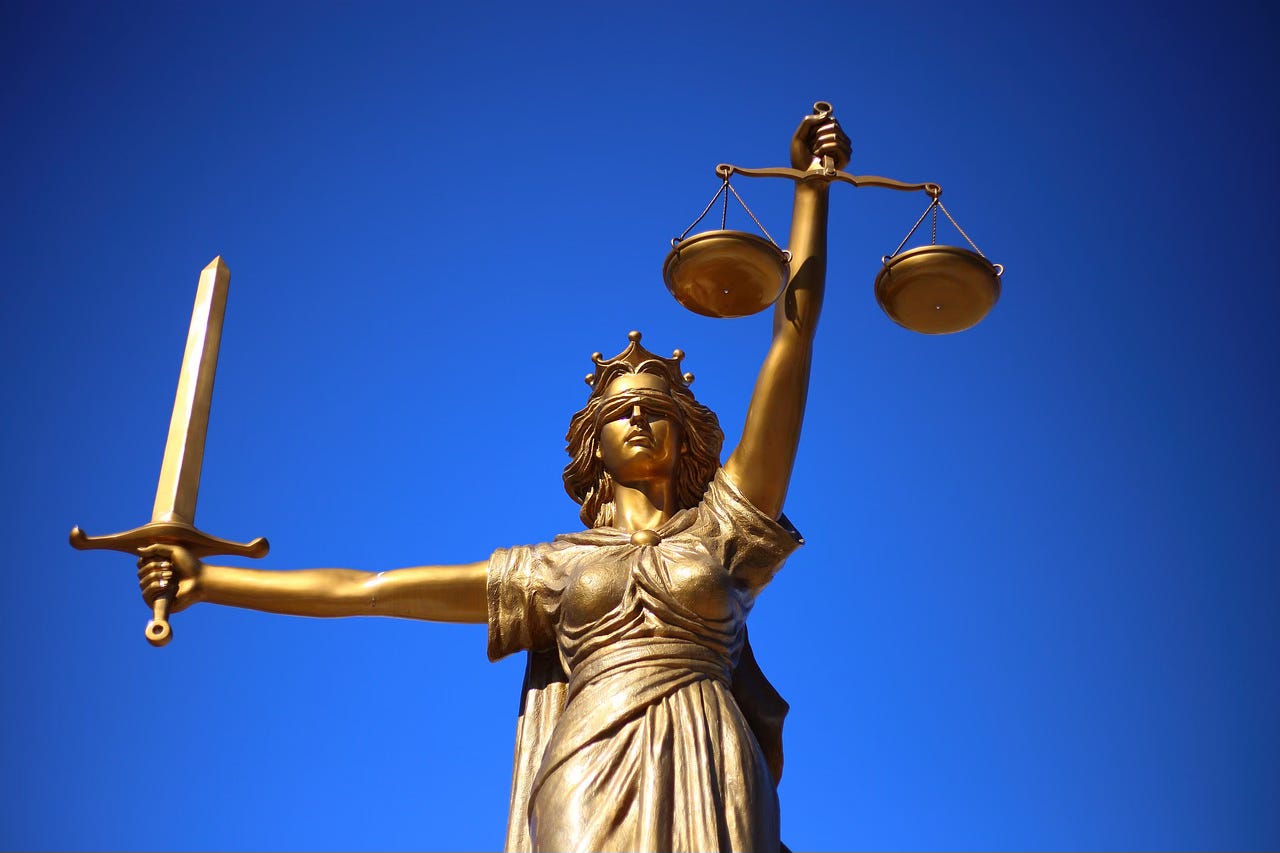‘Knowing’ the laws of your city, county, state, and federal governments is a MUST in news coverage. Not knowing those laws can lead reporters to make big mistakes in the process of ‘gathering, confirming, and reporting’ the news.
I’m pleased to share the third part of a special series on American Law by Kelley Keller.
Welcome to Introduction to American Law (Part 3). If you missed Part 1 or Part 2, you can find them here and here. This is a building series, so be sure to read these parts before proceeding to this Part 3.
The Structure and Content of the Declaration of Independence
Throughout the Declaration of Independence, Thomas Jefferson carefully builds the philosophical foundation and justification for a new government based on eight principles of human freedom directly opposed to the seven ancient pillars of tyranny, all of which are discussed more fully in Part 2. Here’s a quick reminder of the principles and pillars.
Principles Human Freedom
Self-Evident Truths
Laws Come from God and Nature
All Humans are Equal
Human Rights are Unalienable
Life, Liberty, and Property are Among the Most Important Human Rights
Government Must Protect Rights
Governments are Permitted to Exist
People May Change Government At Will
Ancient Pillars of Tyranny
Rulers
Castes / Class
Things in Common
Regulation
Force
Information
No Rights
The Declaration of Independence Has Five Sections
A short document, the Declaration of Independence is organized into five (5) sections. While the original text doesn’t include section titles, we’ve inserted them below for readability.
Section 1: The Preamble
The preamble contains the purpose of the Declaration, which is to formally declare independence from the British government and move forward with a new one of their own making. The straightforward text of the Preamble is reproduced below.
In Congress, July 4, 1776, The unanimous Declaration of the thirteen united States of America
When in the Course of human events, it becomes necessary for one people to dissolve the political bands which have connected them with another, and to assume among the powers of the earth, the separate and equal station to which the Laws of Nature and of Nature's God entitle them, a decent respect to the opinions of mankind requires that they should declare the causes which impel them to the separation.
Section 2: The Assertions
The second section of the Declaration includes a series of assertions incorporating the immutable unchangeable principles of human freedom and unalienable rights. These assertions summarize both the declared purpose and justification for the Declaration.
Here’s the text of the assertions.
We hold these truths to be self-evident,
that all men are created equal,
that they are endowed by their Creator with certain unalienable Rights, that among these are Life, Liberty and the pursuit of Happiness.
That to secure these rights, Governments are instituted among Men, deriving their just powers from the consent of the governed,
That whenever any Form of Government becomes destructive of these ends, it is the Right of the People to alter or to abolish it,
and to institute new Government, laying its foundation on such principles and organizing its powers in such form, as to them shall seem most likely to effect their Safety and Happiness.
Prudence, indeed, will dictate that Governments long established should not be changed for light and transient causes;
and accordingly all experience hath shewn, that mankind are more disposed to suffer, while evils are sufferable, than to right themselves by abolishing the forms to which they are accustomed.
But when a long train of abuses and usurpations, pursuing invariably the same Object evinces a design to reduce them under absolute Despotism, it is their right, it is their duty, to throw off such Government, and to provide new Guards for their future security.
Such has been the patient sufferance of these Colonies; and such is now the necessity which constrains them to alter their former Systems of Government.
Section 3: The Charges
After the assertions, the Declaration transitions to the charges the colonists are levying against the British Crown. Specifically, this section itemizes 27 charges and grievances against King George III and his government. These charges arose from the King’s acts of tyranny and despotism to compel the colonists’ loyalty and obedience to the Crown.
Note also that the various abuses these charges represent are directly addressed and made illegal in the United States Constitution (which comes 12 years after the Declaration).
Below is the text of the charges and a short explanation for each. The short summaries are for convenience only and do not appear in the original text.
The history of the present King of Great Britain is a history of repeated injuries and usurpations, all having in direct object the establishment of an absolute Tyranny over these States. To prove this, let Facts be submitted to a candid world.
1 - The King prevented passage of laws the people wanted and needed.
He has refused his Assent to Laws, the most wholesome and necessary for the public good.
2 - The King suspended new laws until he personally approved them.
He has forbidden his Governors to pass Laws of immediate and pressing importance, unless suspended in their operation till his Assent should be obtained; and when so suspended, he has utterly neglected to attend to them.
3 - The King would not allow new representatives into the assemblies.
He has refused to pass other Laws for the accommodation of large districts of people, unless those people would relinquish the right of Representation in the Legislature, a right inestimable to them and formidable to tyrants only.
4 - The King forced the assemblies to meet in difficult locations.
He has called together legislative bodies at places unusual, uncomfortable, and distant from the depository of their public Records, for the sole purpose of fatiguing them into compliance with his measures.
5 - The King dismissed the people’s assemblies repeatedly.
He has dissolved Representative Houses repeatedly, for opposing with manly firmness his invasions on the rights of the people.
6 - The King prevented the people from electing new assemblies.
He has refused for a long time, after such dissolutions, to cause others to be elected; whereby the Legislative powers, incapable of Annihilation, have returned to the People at large for their exercise; the State remaining in the mean time exposed to all the dangers of invasion from without, and convulsions within.
7 - The King thwarted immigration and homesteading.
He has endeavoured to prevent the population of these States; for that purpose obstructing the Laws for Naturalization of Foreigners; refusing to pass others to encourage their migrations hither, and raising the conditions of new Appropriations of Lands.
8 - The King refused to let the colonies create courts of justice.
He has obstructed the Administration of Justice, by refusing his Assent to Laws for establishing Judiciary powers.
9 - The King coerced judges to obey his will or be fired.
He has made Judges dependent on his Will alone, for the tenure of their offices, and the amount and payment of their salaries.
10 - The King added bureaucrats without benefit to the public.
He has erected a multitude of New Offices, and sent hither swarms of Officers to harass our people, and eat out their substance.
11 - The King forced standing armies without consent.
He has kept among us, in times of peace, Standing Armies without the Consent of our legislatures.
12 - The King made the military superior to civil authority.
He has affected to render the Military independent of and superior to the Civil power.
13 - The King allowed Parliament to impose its will without consent.
He has combined with others to subject us to a jurisdiction foreign to our constitution, and unacknowledged by our laws; giving his Assent to their Acts of pretended Legislation:
14 - The King forced colonists to house armed soldiers.
For Quartering large bodies of armed troops among us:
15 - The King protected his soldiers from punishment for murders.
For protecting them, by a mock Trial, from punishment for any Murders which they should commit on the Inhabitants of these States:
16 - The King cut off trade with all parts of the world.
For cutting off our Trade with all parts of the world:
17 - The King created new taxes without the colonists’ consent.
For imposing Taxes on us without our Consent:
18 - The King deprived the colonists of trial by jury.
For depriving us in many cases, of the benefits of Trial by Jury:
19 - The King forced accused Americans to be tried in British courts.
For transporting us beyond Seas to be tried for pretended offences
20 - The King expanded Quebec’s borders into northern colonies.
For abolishing the free System of English Laws in a neighbouring Province, establishing therein an Arbitrary government, and enlarging its Boundaries so as to render it at once an example and fit instrument for introducing the same absolute rule into these Colonies.
21 - The King rescinded century-old royal charters and destroyed local law.
For taking away our Charters, abolishing our most valuable Laws, and altering fundamentally the Forms of our Governments:
22 - The King assumed all legislative power without consent.
For suspending our own Legislatures, and declaring themselves invested with power to legislate for us in all cases whatsoever.
23 - The King refused to defend the colonies from attack.
He has abdicated Government here, by declaring us out of his Protection and waging War against us.
24 - The King committed open assault against the Americans.
He has plundered our seas, ravaged our Coasts, burnt our towns, and destroyed the lives of our people.
25 - The King hired foreign troops to beat the colonists into submission.
He is at this time transporting large Armies of foreign Mercenaries to compleat the works of death, desolation and tyranny, already begun with circumstances of Cruelty & perfidy scarcely paralleled in the most barbarous ages, and totally unworthy the Head of a civilized nation.
26 - The King kidnapped Americans at sea and forced them to join the British and bear arms against their fellow citizens.
He has constrained our fellow Citizens taken Captive on the high Seas to bear Arms against their Country, to become the executioners of their friends and Brethren, or to fall themselves by their Hands.
27 - The King incited class warfare, internal strife, and war with American Indians.
He has excited domestic insurrections amongst us, and has endeavoured to bring on the inhabitants of our frontiers, the merciless Indian Savages, whose known rule of warfare, is an undistinguished destruction of all ages, sexes and conditions.
Section 4: The Defenses
After the charges come the defenses. This next section of the Declaration of Independence sets forth what the colonists did repeatedly to resolve their differences with the King amicably and peacefully, although ultimately to no avail.
In every stage of these Oppressions We have Petitioned for Redress in the most humble terms: Our repeated Petitions have been answered only by repeated injury.
A Prince whose character is thus marked by every act which may define a Tyrant, is unfit to be the ruler of a free people.
Nor have We been wanting in attentions to our British brethren.
We have warned them from time to time of attempts by their legislature to extend an unwarrantable jurisdiction over us.
We have reminded them of the circumstances of our emigration and settlement here.
We have appealed to their native justice and magnanimity, and we have conjured them by the ties of our common kindred to disavow these usurpations, which, would inevitably interrupt our connections and correspondence.
They too have been deaf to the voice of justice and of consanguinity. We must, therefore, acquiesce in the necessity, which denounces our Separation, and hold them, as we hold the rest of mankind, Enemies in War, in Peace Friends.
Section 5: The Declaration
The Declaration of Independence closes with the actual declaration that, as of July 4, 1776, the American colonists deemed themselves free and independent of the British Crown.
We, therefore, the Representatives of the United States of America, in General Congress, Assembled, appealing to the Supreme Judge of the world for the rectitude of our intentions, do, in the Name, and by Authority of the good People of these Colonies, solemnly publish and declare,
That these United Colonies are, and of Right ought to be Free and Independent States;
that they are Absolved from all Allegiance to the British Crown, and that all political connection between them and the State of Great Britain, is and ought to be totally dissolved;
and that as Free and Independent States, they have full Power to levy War, conclude Peace, contract Alliances, establish Commerce, and to do all other Acts and Things which Independent States may of right do.
And for the support of this Declaration, with a firm reliance on the protection of divine Providence, we mutually pledge to each other our Lives, our Fortunes and our sacred Honor.
Fifty-six brave Americans signed the Declaration of Independence.
Wrapping Up
The Declaration of Independence was signed just months after the American Revolutionary War began on April 19, 1775. The war itself proceeded for eight (8) years and encompassed the final years of the American Revolution. The revolution itself was an ideological and political movement that began in 1765 and culminated in the Continental Army’s defeat of the British Army at Yorktown in 1781.
The Treaty of Paris, signed by King George III and the Americans on September 3, 1783, officially ended the war and recognized the original thirteen British colonies to be free and independent states.
The success of the revolution was not guaranteed, but, in the end, the colonists won and We, the People, became a nation.
Stay tuned for Part 4 where we fast forward to 1787 and the birth of the Constitution after a failed effort with the Articles of Confederation. With their independence won, the first Americans had to ensure there could never be another King George III.
Copyright © Kelley Keller, 2025
Kelley Keller is a writer, researcher, and public speaker focusing on themes and issues at the intersection of law, society, and worldview and why they matter to everyday Americans. In addition to writing for third-party publications, Kelley publishes The Savvy Citizen, an online magazine with a supporting podcast chock full of insights on the rights and responsibilities of American citizenship and how those rights are secured by and protected under the U.S. Constitution and the government it creates.
Before her writing career, Kelley spent 27 years working on intellectual property, privacy, and Internet law matters in various professional capacities, including 8 years supporting international training programs on trade-related aspects of intellectual property and 15 years in the private practice of law. Kelley’s work took her to numerous countries, including China, Hong Kong, Malaysia, Turkey, Kenya, and South Africa, giving her significant breadth and depth of experience with complex matters having a global impact. Most recently, Kelley presented a seminar on Lawfare in Great Power Competition at the Führungsakademie der Bundeswehr (German Army Staff College) in Hamburg, Germany.
Kelley holds a Bachelor of Arts from Penn State, a Juris Doctor from The Catholic University of America, and is a candidate for the Doctor of Ministry in Apologetics degree at Southern Evangelical Seminary. In September 2024, she was commissioned as a Fellow with the Colson Center for Worldview.
Comments and Questions Welcome
I hope these thoughts are helpful to you. Please share your comments and questions and we’ll respond as quickly as we can. If you like what we’re doing in this newsletter, please let your friends know about it so they can subscribe.
Newsletter Purpose
The purpose of this newsletter is to help people who work in the fields of journalism, media, and communications find ways to do their jobs that are personally fulfilling and helpful to others. I also want to help news consumers know how to find news sources they can trust.
[The Real Journalism Newsletter is published every other Tuesday morning — unless there’s ‘breaking news!]





Thank you for publishing this! It's such an important topic!